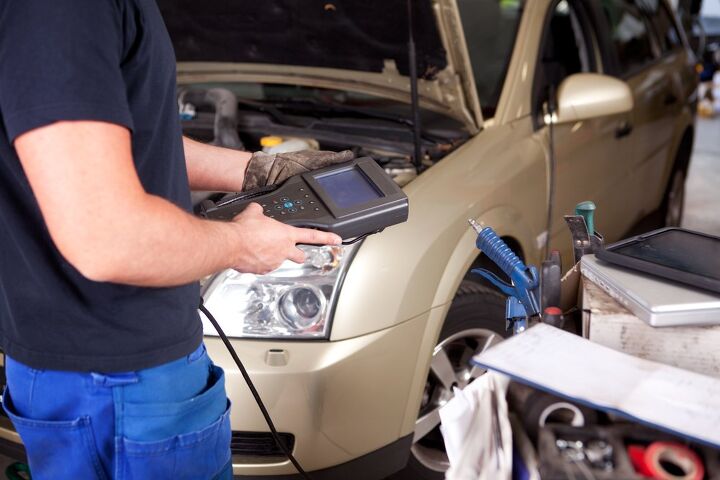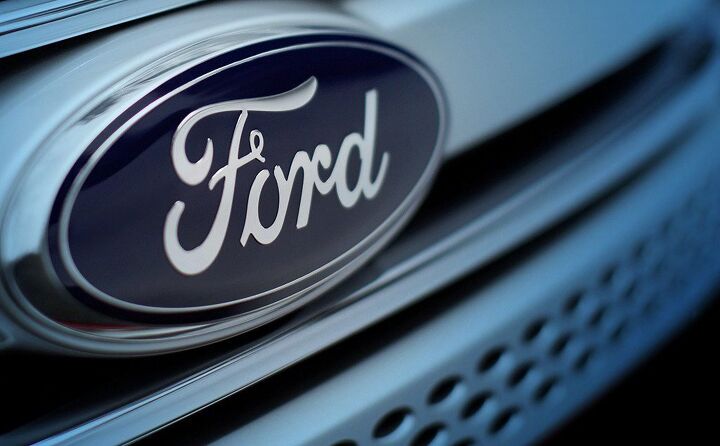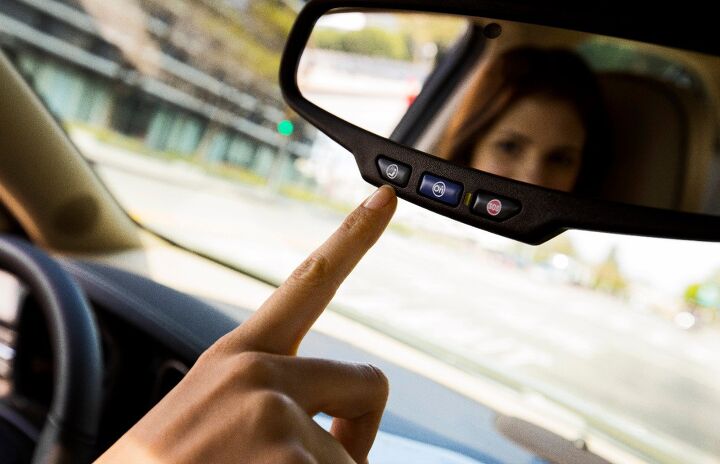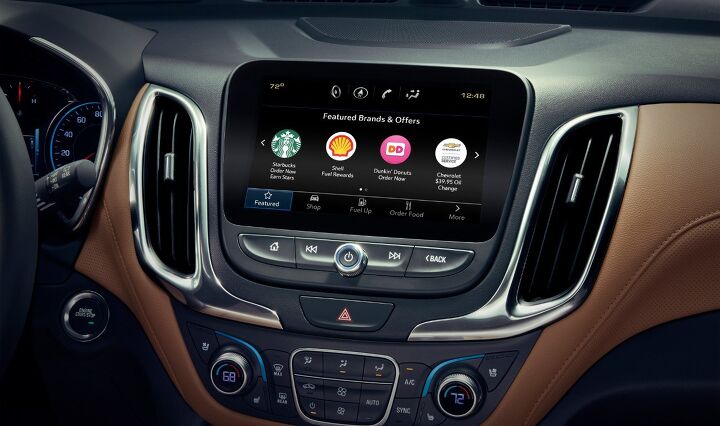#DataAcquisition
Consumer Advocacy Group Demands Driving Data Be Controlled by Drivers
The Global Alliance for Vehicle Data Access (GAVDA) has issued a letter to automotive manufacturers around the world to request consumers be given direct access to the data generated by the vehicles they drive. While the group is comprised of organizations representing rental agencies, car sharing, independent vehicle repair shops that also want access to the information, it’s likewise backed by several consumer advocacy groups that worry customers and small businesses are being taken advantage of.
At the core of the letter is a refutation of claims made in a June 3rd memo the Alliance for Automotive Innovation (AAI) sent to Congress. That group is an assemblage of the world’s largest industry players with an aim to monetize driving data as quickly as possible. It just so happens that the duo are diametrically opposed to how the government should handle user information.
Uber Offering COVID-19 Contract Tracing Data to Government Entities
Uber Technologies Inc. has kicked off a new service that provides public health officials immediate access to data on drivers and riders who may have been in contact with someone infected with COVID-19. Weirdly, the company decided against announcing the sharing of your whereabouts with the government with any fanfare. Perhaps they thought average people wouldn’t be interested, or maybe that broadcasting their own participatory role in crafting a nightmare dystopia could be bad for business.
Then again, maybe this is exactly the kind of mass surveillance we need to flatten the curve, stop the spread, or whatever slogan is currently the trendiest. Worried? Don’t be. Uber said this service will be offered free of charge, meaning you don’t even have to spend any additional money to have your information shared.
What a sweet deal!
The Hero We Need: Consumer Access to Repair Coalition
When it comes to activism, it’s best to choose your battles carefully. Fortunately, there aren’t too many causes within the auto industry and most are easy to get behind.
Even though environmental activists sometimes find themselves at odds with reality, their hearts are usually the right place, and they’ve encouraged automakers to try new and interesting things with transportation. Safety advocates can likewise go overboard, but we wouldn’t have seen cars get dramatically safer (or heavier) since the 1970s if they hadn’t.
Our favorite has to be consumer advocacy, however. With the exception of the occasional predatory lawsuit looking to take advantage of a dumb corporate decision, there’s precious little to scoff about. It also tends to overlap with our pet peeves by decrying bad business practices within the industry. Case in point, the Consumer Access to Repair Coalition has recently asked Congress to rethink how vehicular data is shared — noting that automakers shouldn’t need real-time monitoring for repairs and that the technology likely poses an unnecessary security risk.
Ford Sharing Driving Data With Allstate, Plans Loyalty Credit Card
Adhering to the latest industry trends, Ford has made a deal with insurer Allstate to share customer driving data and plans to issue a loyalty credit card tied into its rewards program. While the latter is in the service of retaining customers (with the help of Visa) in the second quarter of this year, the insurance partnership is technically already active. The Blue Oval is by no means the only automaker involved in such programs.
Like other automakers, Ford has already partnered with insurance companies in regional programs aimed at assessing how customers drive, using the collected information to adjust policies. Originally, this involved devices installed with the customer’s consent that transmitted telemetric data back to home base. Later versions were able to use on-board systems in conjunction with a downloadable app. Now, with connected cars becoming the norm, Allstate says it can just get the information directly from vehicles via manufacturer data centers.
Report: Connected Cars Already Know Everything About You
Vehicular privacy is one of those things we never thought we’d have to gripe about but, as automotive connectivity becomes the norm, it’s become one of the most nagging issues in the industry.
Taking a cue from tech giants like Google, Facebook, and pretty much every other website you’ve ever connected to, automakers have begun leveraging customer data on a massive scale. Always-on internet connections exacerbated this problem (feature?), but it’s extremely difficult to tell exactly what kind of information is being shot up into the cloud before ending up at a manufacturer’s data center.
While we’ve seen cars hacked for the purpose of assessing how they’d stand up to malicious entities bent on wreaking havoc, few have attempted to decode the surplus of information emitted by your vehicle. We know this because people would probably be pretty upset to learn of the pathetic level of anonymity currently afforded to them. Despite spending tens of thousands of dollars on a new vehicle, privacy is rarely considered standard equipment.
States Begin Dealing With Driving Data, Right-to-Repair Laws
In reading this website, you’ve no doubt come across paranoid rants about automotive companies vacuuming up your personal data as connected cars become the norm — often written by yours truly. Frequently bleak, they address a multitude of concerns we believe will only get worse before they can get better.
A large part of that has to do with automakers seeing the potential of leveraging customer data, like so many tech companies have before them. But elected (and unelected) officials also seem to have a loose grasp of the technology and its potential ramifications. When the Department of Transportation initially approved self-driving vehicles for public testing, the guidelines were loose and largely dependent upon self-reporting — few wanted to stand in the way of developing systems that might someday save lives.
However, manufacturers are now beginning to issue over-the-air updates, perpetual internet connectivity, gamification, and in-car marketplaces (complete with advertisements). While the new technology has opened up new doors for customer experiences and corporate revenue, it’s accelerating at a pace that’s difficult to track. As a result, lawmakers in Massachusetts and California are starting to get antsy. The former hopes to address how data will be handled in accordance with the state’s right-to-repair laws. The latter is more directly concerned with privacy.
Automakers Helping China Spy on Drivers: Report
As concerns grow about the Chinese government’s technology-driven “social credit” system of controlling its citizens, the Associated Press reports that the country, through regulations for electric vehicles, is requiring global automakers to supply telemetric data from their vehicles that could help the one-party state spy on its people.
American, German, and Japanese automakers, including General Motors, Ford, Tesla, Daimler, BMW, Nissan, and Mitsubishi, are among 200 manufacturers whose products must transmit location information and dozens of other pieces of driving data in real time that ultimately end up in monitoring centers that can report that data to the Chinese government.
Opening Pandora's Box: GM Tracking Consumer Listening Behavior in Cars
General Motors has begun surveying how its drivers experience in-car multimedia, specifically the radio, as part of its new strategy to track customer habits and maximize the profitability of information. With 4G LTE WiFi connectivity now featured inside millions of GM vehicles, the automaker believes technology can be used to fine tune its future marketing strategies.
While an invaluable insight tool for advertisers, it’s also the perfect example of the kind of thing we’ve been complaining about for the last couple of years. General Motors is leaning into Big Data as hard as possible, meaning your personal information could soon be on the line — if it isn’t already.
Safety Advocates Getting Testy Over Automotive Apps, Consumer Data
Automakers began hunting for new revenue streams about two milliseconds after realizing they could put the internet into vehicles. While the earliest endeavors involved ride-sharing applications and new infotainment features, companies are now beginning to see new opportunities via automotive e-commerce, data acquisition, and in-car marketing.
However, the delivery system used for these new sources of revenue pose a legitimate safety concern. Distracted driving is on the rise and shopping while behind the wheel isn’t likely to remedy the situation.
Apple Rebuilding Maps App, Hopes to Outperform Google
Apple Maps has been a lackluster tool for navigation since its launch. Of course, you probably don’t know this because you’re statistically more likely to back out of the driveway using Google Maps or Waze. That’s because the latter programs seem to work as intended. The same cannot be said of the former.
While Apple can get you down a major highway without incident, it frequently falls apart when you start asking it to make sense of a complex, overlapping network of roads or sparsely traveled rural area. Meanwhile, Google has already mapped the same areas twice and taken photos of every blade of grass within 100 square miles.
Upon launch, Apple Maps was plagued with issues. Areas were left blank, locations were misnamed, landmarks were misplaced. Had it come out a decade earlier, it’d have been a technological marvel. But with competent competition readily available, the iOS-based navigation system was (and remains) unacceptable. So Apple is giving it a complete overhaul.
Japan's SoftBank Dumps Cash Into America's Autonomous Vehicles, Sets GM Deadline for 2019
Several months after procuring a large ownership stake in Uber, SoftBank has placed $2.5 billion into General Motors’ self-driving program. The automaker intends to begin deploying autonomous vehicles next year and CEO Mary Barra says her company will invest $1.1 billion of its own funds into the effort to ensure the timeline is adhered to.
Thanks to the hefty investment from SoftBank’s Vision Fund, the Japanese holding company now owns roughly 20 percent of General Motors’ tech subsidiary, known as Cruise Automation. While tech firms and automakers have been driving hard to surpass each other in terms of autonomous development for years, GM currently appears to have the most riding on the hardware.
GM Revamps OnStar: Take a Long Look In the Mirror
When General Motors first deployed OnStar, it was a little more than an emergency services hotline. Drivers in need could tap a blue button on their rearview mirror and immediately get in contact with an operator. The system could also do this automatically in the event of a crash. OnStar later introduced anti-theft measures, turn-by-turn navigation, and remote access as part of a subscription plan.
However, with General Motors seeing dollar signs wherever connectivity is involved, the automaker wants to retool the system. OnStar will continue offering existing services, but GM is changing the subscription model and placing a new emphasis on data acquisition. The good news is that the tiered payment model will offer more features starting in May. Unfortunately, some those amenities used to be free and those fed up with companies selling your data or paranoid about Orwellian Big Brother scenarios might be less enthusiastic about the long-term corporate vision.
GM Adds Digital Marketplace to Its Vehicles for Onboard Purchasing
General Motors has announced it is the first automaker with its very own in-car commerce platform. We aren’t the least bit surprised.
In fact, we’ve been waiting for GM to announce something like this ever since it expressed an interest in using OnStar to deliver “personalized marketing offers” a little over a year ago. Since then, the manufacturer has also indicated plans to create an app store accessible from a vehicle’s infotainment system, as well as use driver data acquisition as a possible revenue source.
While GM isn’t the only company taking this path, it’s arguably the one that’s gotten the furthest. Our takeaway is that the services being rendered and developed are extremely clever ways for an automaker to rake in money, but will not be universally popular. This early example of GM’s changing business model ought to make the company a bundle while aggravating a certain percentage of consumers.




























Recent Comments